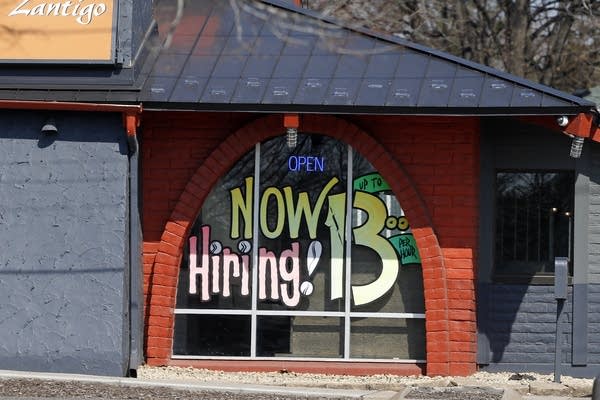MN jobs market has taken some hits, but it’s still standing

A window message at a Mexican fast-food restaurant advertises for job hiring Thursday in St. Paul, Minn. where the business remains closed due to the coronavirus.
Jim Mone | AP Photo
Go Deeper.
Create an account or log in to save stories.
Like this?
Thanks for liking this story! We have added it to a list of your favorite stories.


